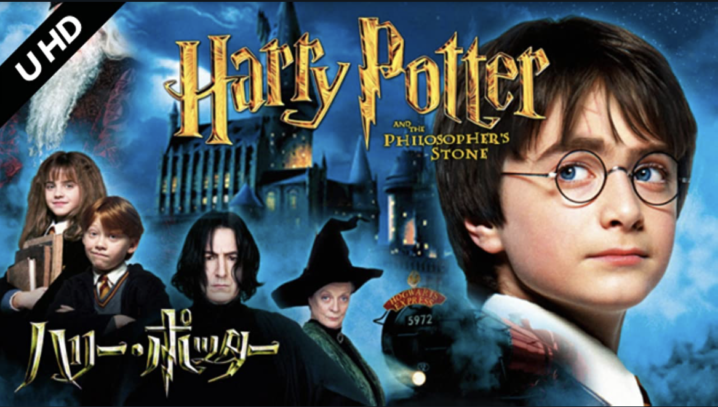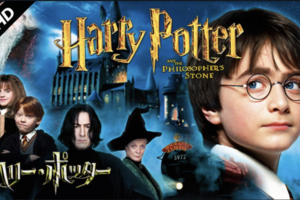chapter2: The Vanishing Glass
Why don’t you just cook the breakfast, and try not to burn anything
「朝食さっさと作りなさい。何も焦がすんじゃないよ!」
why don’t you Vで「〜したらどうですか?」
上から目線のアドバイスという感じで、軽い命令・指示のニュアンスが強いです。
ここでは明らかに命令って感じですけど…
I want everything to be perfect for my Dudley’s special day.
「ダドリーの特別な日はすべてのものが完璧であってほしいわ。」
S want A to be で「Aが〜であることを望む」
Aren’t they wonderful, darling?
「素晴らしいと思わない? すごいわよね?」
否定疑問文の典型。
「これら(このおもちゃたち)は素晴らしくないですか?(直訳)」→ 「これらは素晴らしいですよね?」
となり、自分の意見と同意見であることを確認する表現になっています。
- darlingは恋人や配偶者に使う他に、お気に入りの人や寵児(社会的にノリに乗っている人)などに対しても使う。
This is what we’re going to do, is that when we go out, we’re going to buy you two new presents!
「じゃあ、こうしよう。外出した時に、新しいプレゼントを2つ買おう!」
This is what we’re going to do
(直訳) 我々がする予定のことはこうです
(意訳) じゃあ、こうしよう
Thisが直後の「is what we’re going to do」と「is that when we go out, we’re going to buy you two new presents」の両方につながっていると考えることができます。
Any funny business, any at all, and you won’t have any meals for a week.
「少しでもおかしな挙動をとってみろ? 一週間メシ抜きだぞ!」
文頭に「if you do」が省略されています。
ここではbusinessは「仕草、行動」という意味で使われています。
He doesn’t understand what it’s like, lying there day after day, having people press their ugly faces in on you
「彼(ダドリー)はわからないのさ。毎日そこに閉じ込められて、醜い顔を押し付けられる気持ちが」
havingではなく、watchingに聞こえますね。
watchは知覚動詞で、
watch + 人 + Vで「人がVするのを見る」となります。
lying thereは「lie there (そこに横になる)」の動名詞での表現で「そこに横になること」
watching people press their ugly faces in on youは「人が醜い顔をあなたに押し付けているのを見ること」
Anytime
「どういたしまして」
You’re welcome以外にも「どういたしまして」の表現があるのですね。
他にも以下のような表現があるようです。
- That’s OK
- Sure
- No problem
- Don’t mention it.
- my pleasure
- You’re welcome








コメントを残す